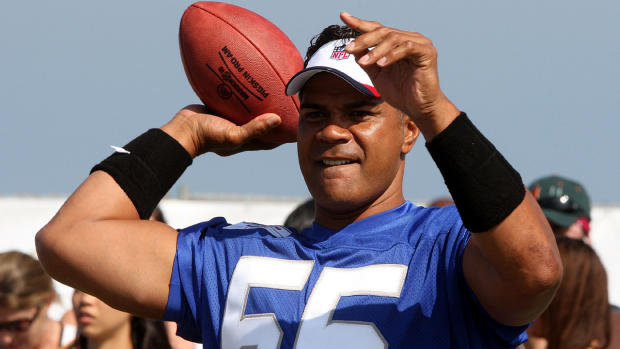Derek Boogaard's sudden death: Is brain disease to blame?
(CBS) Did repeated brain trauma kill Derek Boogaard? That's what researchers will try to find out following the unexpected death of the 28-year-old pro hockey player.
Boogaard - who was known for rough play - was found dead in his Minneapolis apartment Friday. Police found no signs of foul play, and autopsy results are pending.
PICTURES- NFL brain drain: 13 players who donated their brains to science
Boogaard had been recovering from a season-ending concussion he sustained during a game last Dec. 9. As recently as March, Boogaard was still feeling effects of the concussion, needing sunglasses anytime he left his apartment because sunlight bothered him, according to the New York Times.
The possibility that the concussion was related to his death led his family to join other athletes' families to authorize researchers at Boston University to determine if he suffered from chronic traumatic encephalopathy at the time of his death. CTE, once known as "punch-drunk syndrome," is a degenerative brain disease that causes memory loss, depression, and Alzheimer's-like symptoms.
In March, another NHL enforcer, Bob Probert, was found to have the disease following autopsy, according to the New York Times.
The CSTE has studied the brains of 75 deceased athletes, according to co-director Chris Nowinski, president of the Sports Legacy Institute.
"One of the best ways we're finding out the long-term effects of hits to the head is through actually studying the brain post-mortem," Nowinski told the Canadian Press. "A lot of the abnormalities we find cannot be studied in living people, so we really appreciate every family that's participated. They've changed the knowledge of CTE."

